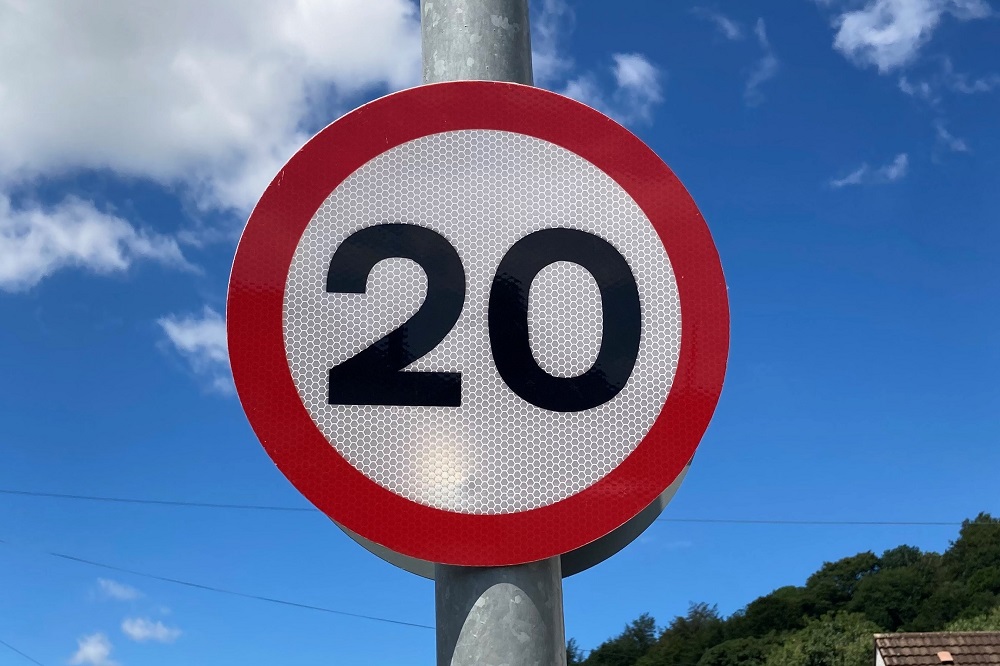New report highlights benefits of introducing 20mph default speed limit

Slower driving speeds, increased levels of walking and cycling and minimal impact on journey times are among the key findings of a new report carried out in areas of Wales trialling the new default 20mph speed limit.
The interim monitoring report uses data gathered from the Welsh Government’s eight first phase areas and has been published today (March 17) – exactly six months before the default limit is applied across Wales.
On September 17, the Welsh Government will introduce a default 20mph speed limit on restricted roads across the nation.
Restricted roads include those where streetlights are placed no more than 200 yards apart and are usually located in residential and built-up areas with high pedestrian activity.
The move will see Wales become the first UK nation to introduce a lower speed limit following in the footsteps of European countries, such as Spain, where a 30km/h limit (18.5mph) is already in place.
The interim report found that, on average, motorists are already driving slower in the first phase areas with an average speed reduction of 3mph recorded across all eight communities.
Behaviour change
Substantial behaviour change has been observed in St Brides Major and St Dogmaels (two of the first phase areas to be introduced) where the number of people driving at or below 24mph has increased from 23% to 45% and from 54% to 84% respectively.
Findings from other 20mph implementations in the UK show that even small reductions in average speeds across a road network where people live and work can result in substantial reductions in collisions and serious injury, helping to make communities safer.
The report also concluded that in areas where 20mph was introduced there have been more children walking, cycling, and scooting to school.
Using data from Living Streets’ Wow walk to school challenge, it reported that schools in 20mph areas have seen a greater increase in active travel journeys (49% to 74%), compared to schools predominantly in 30mph areas (49% to 67%).
Bold move
Deputy Minister for Climate Change, with a responsibility for transport, Lee Waters said: “This latest data is already showing the benefits we can expect to see across Wales thanks to the bold move we are taking to lower the default speed limits later this year.
“Decisions like this can be unpopular and we know that change is never easy, however, evidence from around the world is clear – reducing speed limits save lives.
“We have made progress on reducing deaths and serious injuries on our roads over the 21 years of devolution, but we still need to do more to make the communities we work and live in safer.
“A reduction to 20mph on our residential and other busy pedestrian urban roads has to be the way forward.”
Plaid Cymru has supported the introduction of the lower speed limit though the Senedd, however the Welsh Conservatives strongly oppose the move.
Conservative Shadow Minister for Transport, Natasha Asghar, backed the introduction of 20mph speed limits outside schools, playgrounds, places of worship and high streets, but said a blanket rollout is “quite frankly ludicrous.”
“Speed limits like this should be decided by councils in their local areas, not top-down by Labour ministers,” she added.
A national communications campaign to help communities prepare for the change to 20mph has also been launched today.
Support our Nation today
For the price of a cup of coffee a month you can help us create an independent, not-for-profit, national news service for the people of Wales, by the people of Wales.







One advantage not discussed is that we may have fewer pets, cats and dogs, being run over and killed or injured. It will reduce the heartache for many people. May also reduce the amount of wildlife hit, birds etc.
Good point. Kids, cyclists, pedestrians including those who have had a drink and are just trying to get home from the pub too…